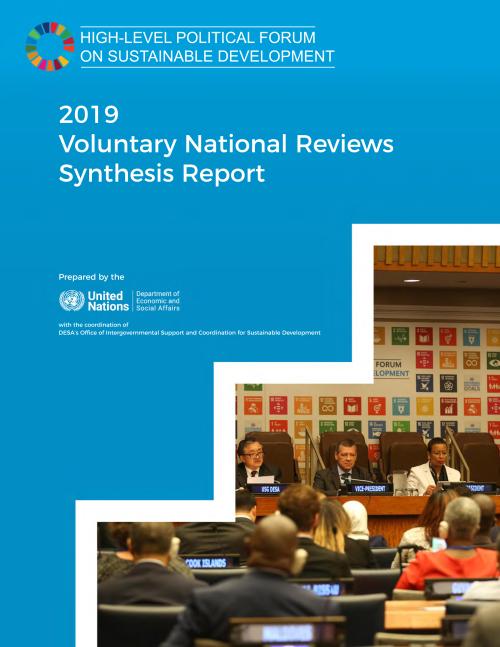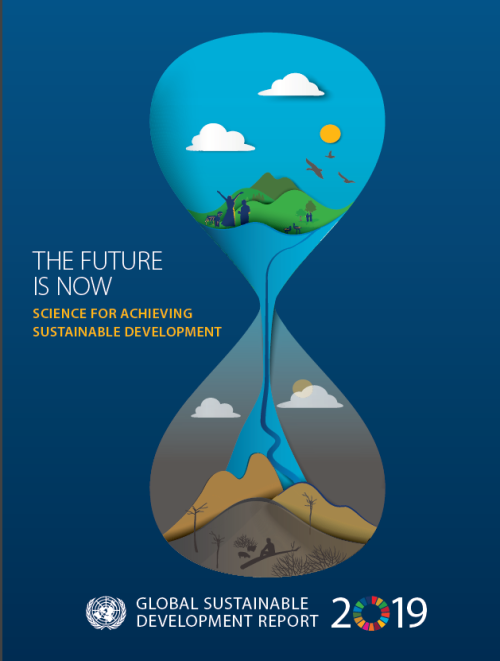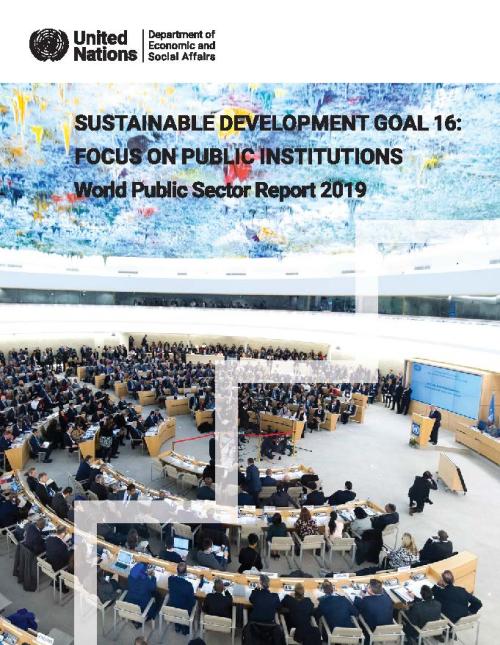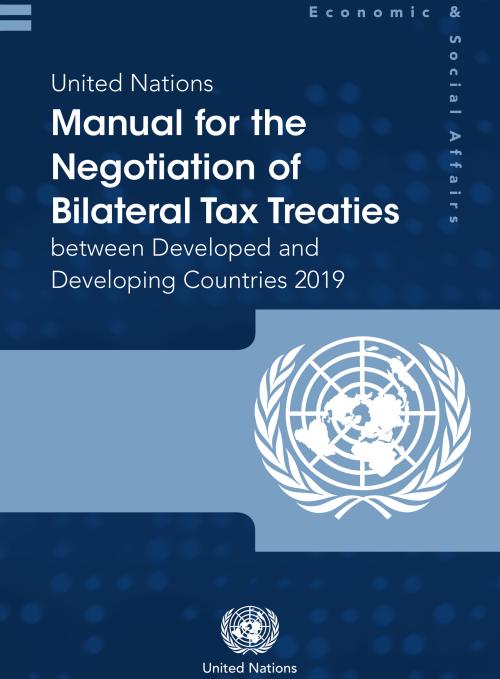Publications

47 countries presented their Voluntary National Reviews (VNR) at the High-level Political Forum on Sustainable Development (HLPF) under the auspices of the UN Economic and Social Council, held in New York from 9 to 18 July 2019. Since 2016, when the first reviews were presented, a total of 142 countries have reported on their efforts to implement the 2030 Agenda for Sustainable Development and its 17 Sustainable Development Goals (SDGs).
As in previous years, this report provides an overview of the approaches and actions taken by all countries reporting in 2019 and showcases best practices, lessons learned, gaps and challenges encountered in working towards the achievement of the…

Achieving human well-being and eradicating poverty for all of the Earth’s people—expected to number eight and a half billion by 2030—is still possible, but only if there is a fundamental—and urgent—change in the relationship between people and nature, and a significant reduction in social and gender inequalities between and inside countries, according to a new United Nations report by an independent group of scientists to be launched at the 2019 SDG Summit, but made available today.
The Report, requested by all countries to evaluate progress on the 2030 Sustainable Development Agenda, is the first of its kind since the landmark Sustainable Development Goals (SDGs) were adopted…
The impacts of climate change and increasing inequality across and within countries are undermining progress on the sustainable development agenda, threatening to reverse many of the gains made over the last decades that have improved people’s lives, warns the 2019 report on the Sustainable Development Goals.
Launched during the UN High-level Political Forum on Sustainable Development, a critical annual stocktaking event, the report, based on the latest available data, remains the cornerstone for measuring progress and identifying gaps in the implementation of all 17 Sustainable Development Goals.
Four years since the adoption of the Sustainable Development Goals --…

The 2030 Agenda and the Sustainable Development Goals (SDGs) prominently feature institutions, both as a cross-cutting issue in many of the goals and as a standalone goal (SDG 16). The World Public Sector Report 2019 looks at national-level developments in relation to several concepts highlighted in the targets of Goal 16, which are viewed as institutional principles: access to information, transparency, accountability, anti-corruption, inclusiveness of decision-making processes, and non-discrimination. The report surveys global trends in these areas, documenting both the availability of information on those trends and the status of knowledge about the effectiveness of related policies…

The United Nations Manual for the Negotiation of Bilateral Tax Treaties between Developed and Developing Countries (2019) is a compact training tool for beginners with limited experience in tax treaty negotiation. It seeks to provide practical guidance to tax treaty negotiators in developing countries, in particular those who negotiate based on the United Nations Model Double Taxation Convention between Developed and Developing Countries. It deals with all the basic aspects of tax treaty negotiation and it is focused on the realities and stages of capacity development of developing countries.
While every country should form its own policy considerations and define…
The 2019 Financing for Sustainable Development Report (FSDR) of the Inter-agency Task Force on Financing for Development warns that mobilizing sufficient financing remains a major challenge in implementing the 2030 Agenda for Sustainable Development. Despite signs of progress, investments that are critical to achieving the Sustainable Development Goals (SDGs) remain underfunded and parts of the multilateral system are under strain.
The FSDR recommends that the international community should use this opportunity to reshape both national and international financial systems in line with sustainable development. If we fail to do so, we will fail to deliver the 2030…
 Welcome to the United Nations
Welcome to the United Nations